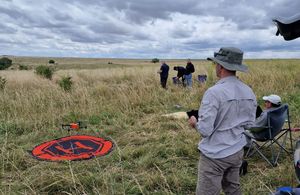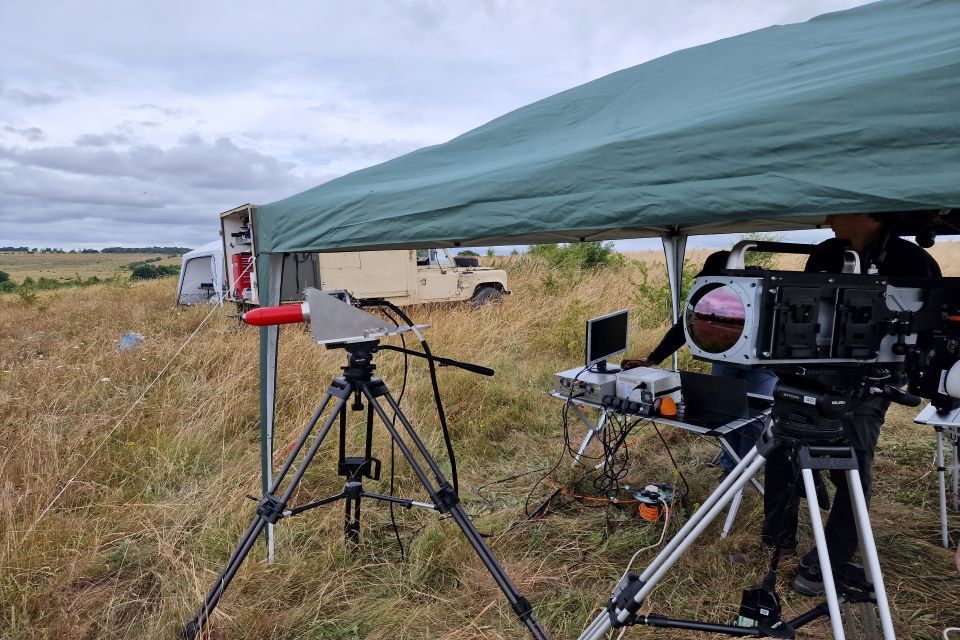Dstl hosts pioneering trial to aid AI target recognition
The trial captured valuable data about a variety of land platforms and will enable the defence community to develop and test machine learning and AI techniques.

Scientists on Salisbury Plane
Artificial intelligence (AI) for defence applications could be developed more quickly due to an innovative defence community-based approach to trial hosted by the Defence Science and Technology Laboratory (Dstl). Over time this could increase weapon capability and reduce development cost.
One of the major challenges facing defence AI suppliers is the lack of available datasets for certain tasks such as target recognition. To provide data safely and responsibly Dstl’s trial utilised a combination of platforms of interest. This included tanks, infantry fighting vehicles, and armoured personnel carriers, deployed across 5 different areas of Dstl’s trial range around Salisbury Plain.
Industry partners from Thales, MBDA, Leonardo, Lockheed Martin and Frazer-Nash were able to record data from a variety of cameras and sensors and provide this to MOD whilst retaining access to the data to train and develop their machine learning algorithms.
Using a variety of electro-optic and infrared systems the trial captured valuable data of land platforms against different terrain backgrounds and in the presence of camouflage and obscurants.
This MOD-owned dataset will be invaluable in supporting the development of machine learning and AI techniques that can be shared with the defence community to train and validate their algorithms.
Specialist Dstl staff drove, commanded and operated the threat platforms and vehicles, positioning the platforms in realistic battlefield orientation amongst non-threat vehicles and buildings.

Scientists on Salisbury Plane
The dataset collected will aid the development of target recognition algorithms and investigate their ability to identify particular enemy threats at various ranges, directly improving UK battlefield capability through Dstl’s Cooperative Weapons technology demonstrator programme.
The MOD-owned image library will be available to defence suppliers, and its use could lead to increased weapon capability and reduced development costs.
Dstl’s Weapon Systems Programme Manager, Simon Zavad, commented:
The trial drew on the specialist expertise across multiple areas of Dstl, bringing them together to collaborate with industry partners and government colleagues. The data gathered could accelerate the development of AI software, improving the accuracy of data to enable commanders to make better combat decisions.
Defence Equipment and Support (DE&S) are hosting all the trial data on the Defence Digital Cloud and managed the data gathering contracts.
Find out more about Dstl’s Weapons Programme and how to get involved.